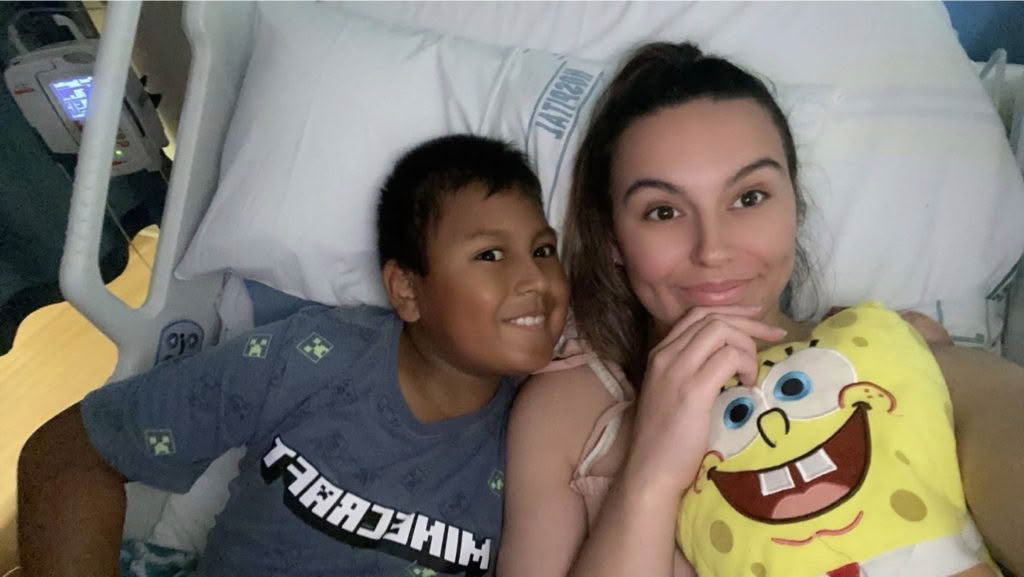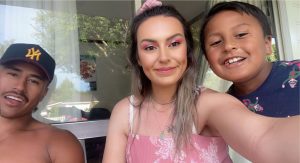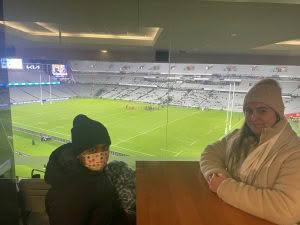The Hooper Felise Family - Rotorua

At nine years old, Te Waarakihi Hooper is a typical Kiwi boy who loves the outdoors, camping, fishing, and riding motorbikes with his parents, Sherene and Tala. The Hooper Felise’s place a lot of importance on spending time with whānau, and Te Waarakihi adores staying with his Nane and Popa on their farm.
Earlier this year Sherene and Tala noticed Te Waarakihi’s energy levels were decreasing; their once “active, cheeky boy” was extremely lethargic, and started having random nosebleeds. Sherene explains, “one day my parents were looking after him and noticed his eyes and skin were turning yellow, so they took him to Rotorua Hospital.” A blood test uncovered Te Waarakihi was low in all blood cells – his white blood cells, haemoglobin, and platelets were practically non-existent. 
Sherene raced the hospital to be by his side, facing a mother’s worst nightmare – your child experiencing sudden, serious illness. “I just went into mum mode I guess and just sort of blocked everything else out to just focus on my son,” says Sherene. The doctors explained they needed to perform a transfusion, which meant the family had to be flown by helicopter to Starship as local facilities didn’t offer that treatment. They were told the difficult news that Te Waarakihi’s test results confirmed Severe Aplastic Anaemia – an extremely rare and life-threatening condition where the bone marrow fails. "His bone marrow had stopped working and so he had no new blood cells forming in his body, that's why his blood cells were so low." This news understandably rocked the tight family unit.
Te Waarakihi began immune suppressant therapy which has been working on a temporary basis, but what he desperately needs is a bone marrow transplant. Given Te Waarakihi is of Māori and Polynesian descent, the donor pool is small; of the 40 million donors worldwide, only 9,000 are Māori or Pasifika. Heartbreakingly, no fully matched donor has been found for him so far. “We’re pleading with people to go and get their bloods done and they get on the bone marrow registry because they could save a little kid's life,” Sherene says, "imagine saving somebody's life, even if it was just one person."
When Te Waarakihi was well enough, both he and Sherene were discharged to the Domain Ronald McDonald House where his grandparents had already been staying. “The support of Ronald McDonald House at this time was so essential to our family’s emotional and physical wellbeing,” Sherene explains, “it meant we could all be near his bedside which was so important for Te Waarakihi as well.” The close vicinity to Starship was a blessing, with Te Waarakihi still needing daily treatments.
In total the family stayed at RMHC for over four months, and Sherene says the staff meant the world to her and her whānau, not only lifting the financial burden of finding accommodation away from home – but offering a shoulder to cry on after difficult days in the hospital. “They provided a warm, safe space for my family to recoup in – I don’t know how I would have coped without them to be honest. The team are just amazing.”
Te Waarakihi has some wonderful memories of his time at the House. Sherene says his favourite memory was Easter weekend; “RMHC put on a massive Easter egg hunt for all the kids – they were running around finding eggs, absolutely loving it. He also had a really special time at the Chiefs vs Blues rugby game that RMHC sent us to – he’ll talk about these experiences for a long time to come.”
Sherene was relieved to find communal pantries stocked with food, home-cooked meals put on twice a week, “it took the stress away of having to cook dinner after being in the hospital for hours.” 
But the biggest impact for Sherene was the safety that RMHC NZ provided her and her family during some of the most harrowing days of their lives. “It’s such a warm and safe space to recharge, so close to the hospital. The bedrooms are lovely, and the staff are always there to talk.
“On the really hard days when I felt very stressed and low, seeing their smiling, friendly faces was amazing. I cried, laughed, and smiled with them. I can never thank RMHC NZ enough – the people that work there are wonderful; it really is such an amazing charity.”
Te Waarakihi and his mum still have a journey ahead of them. And RMHC NZ will be there to help whenever needed. This is the real measure of your generous support, making the unbearable a little more bearable for families. Thank you.
